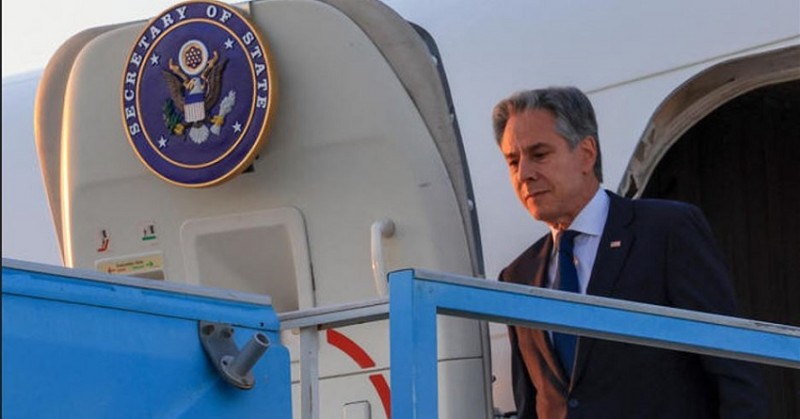
US Secretary of State Antony Blinken has described the current ceasefire negotiations as potentially the "best, maybe the last opportunity" to secure a deal that would free hostages and end the ongoing conflict in Gaza. Speaking after a meeting with Israeli President Isaac Herzog on Monday, Blinken emphasized the urgency of the situation, noting that this was his ninth visit to the region since the conflict escalated in October.
Blinken's remarks come amid resumed talks in Doha, where the US has shown optimism about reaching an agreement. However, Hamas has dismissed these hopes as an "illusion," citing unresolved issues such as whether Israeli troops will fully withdraw from Gaza, a condition Hamas insists upon.
During his meeting with President Herzog, Blinken stressed the need to avoid any actions that could escalate the conflict or derail the negotiations. "This is a decisive moment," Blinken stated. "We must do everything possible to secure a ceasefire and bring the hostages home, setting a path toward lasting peace and security."
The current negotiations are based on a revised US proposal aimed at bridging gaps between Israel and Hamas. The US hopes to finalize the deal within the next week, though this optimism is not universally shared. Both Israeli and Hamas leaders have accused each other of obstructing the deal.
Hamas has criticized Israeli Prime Minister Benjamin Netanyahu for introducing new conditions that it believes are intended to prolong the conflict. The group holds Netanyahu "fully responsible" for impeding the negotiations. Meanwhile, Israeli officials have suggested that alternative measures could compensate for a partial withdrawal of Israeli forces from Gaza's southern border.
The conflict, which began following a severe attack on southern Israel on October 7, has resulted in significant casualties, with more than 40,000 deaths reported in Gaza according to local sources. A previous ceasefire agreement in November led to the release of 105 hostages and a temporary ceasefire, but challenges remain, with 111 hostages still believed to be held.
US President Joe Biden has indicated that the parties are closer to reaching a deal than ever before, though past optimism has often been dashed. Prime Minister Netanyahu has emphasized the importance of maintaining certain security principles, while accusing Hamas of being inflexible in the negotiations.
A senior Hamas official recently criticized the mediator proposals as "very disappointing," suggesting that significant obstacles still exist. The ongoing tension and distrust between the parties make a swift resolution seem unlikely.
In the background, the timing of the negotiations may be influenced by Washington’s electoral politics, adding additional pressure for a swift resolution. The proposed deal, originally outlined by President Biden, includes three phases: a full ceasefire, the release of all hostages, and a major reconstruction plan for Gaza.
In recent developments, the Hamas-run health authority in Gaza reported that Israeli airstrikes on Sunday resulted in at least 21 deaths, including six children. The Israeli Defense Forces (IDF) responded by targeting rocket launchers in Khan Younis, a city in southern Gaza, killing 20 Palestinians.